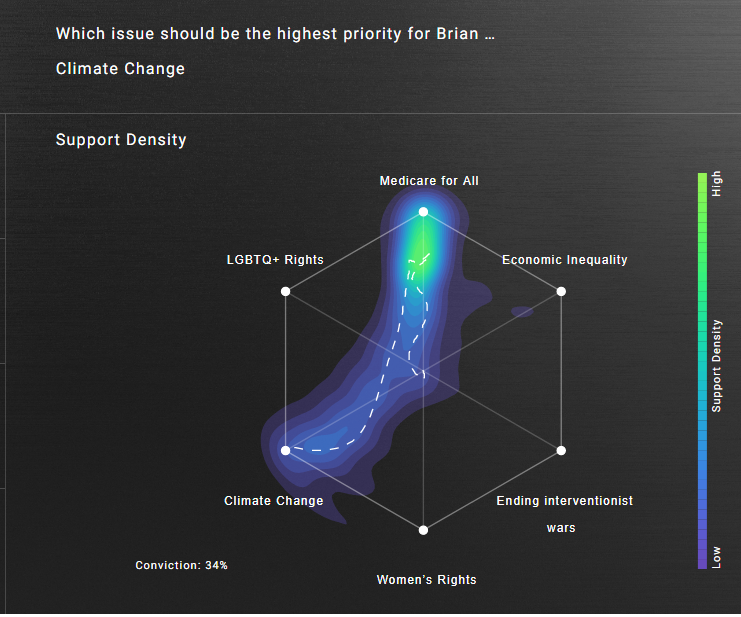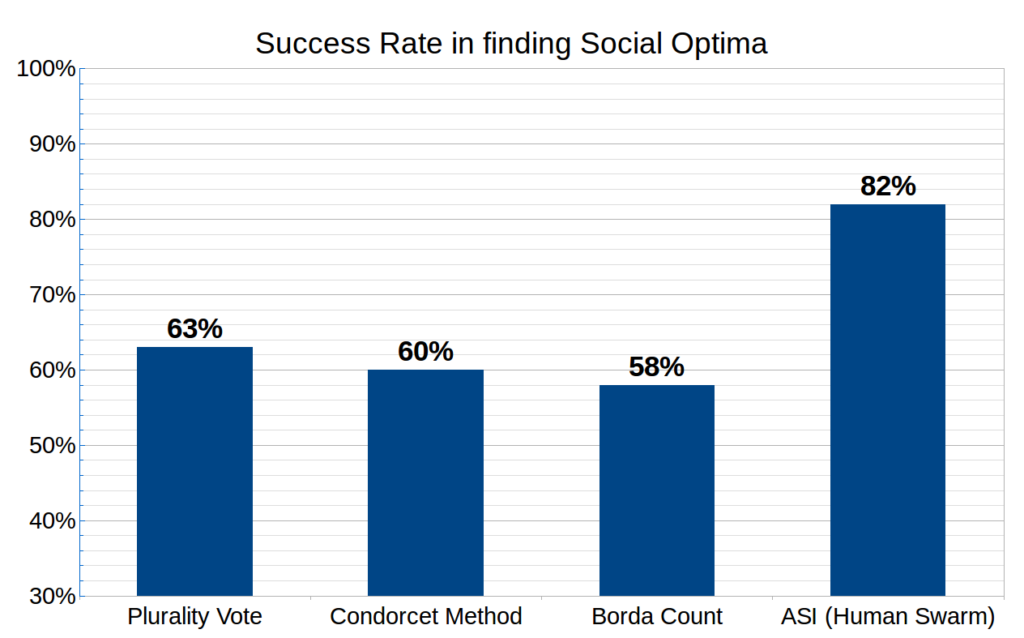Congressional Candidate (Brian Burns) used Swarm to Maximize Voter Involvement
Brian Burns, a Congressional candidate in Chicago, recently held an interactive Town Hall powered by Swarm AI technology. The “Take a Leap” event was attended by Burns supporters from across the Illinois 5th District, who were asked a wide-ranging set of questions, focused on issues of electability and morality. Attendees also used Swarm to give Burns direction on what the candidate’s priorities should be as a Congressman.

Brian Burns said, “the goal for the event is simple: we want to re-imagine what democracy can look like in the 21st century. The constitution was written 250 years ago when information was carried on foot. We have tools for communication and decision making that the Founders couldn’t have dreamed of, and we need to start putting them to good use. Are we going to discover a magic bullet that “solves” the problems of modern politics? No. But we will be taking a momentous first step of dreaming about what these solutions can look like.”
Finding the optimal response to a question of political priorities is crucial for an effective democracy, and the group who participated in the Take a Leap event demonstrated just how vigorous and dynamic the future of democracy can be. In the Support Density graph below, 5th district voters showed clear support for two issues, Medicare for All and Climate Change, in a back-and-forth battle that gave the Congressional candidate a clear mandate for where he should focus his energies. As in the study, traditional voting methods would not have revealed this depth of information, nor would the participants have felt that the outcome represented their sentiment with nearly the same conviction.

For these reasons and more, Swarm represents a powerful new way for groups to maximize their effectiveness. Inspired by the way swarms form in nature in order to solve complex, life-or-death challenges, Swarm AI technology can help bring out the best in your group.
Swarm was developed by Unanimous AI to amplify the intelligence of human groups, enabling diverse populations to combine their knowledge, wisdom, insights, and intuition in optimal ways. Over two dozen academic studies have been published in collaboration with major universities attesting to Swarm’s ability to make groups smarter in tasks such as forecasting, diagnosis, and estimation. But, a different kind of study from Unanimous AI deserves a closer look as we consider how technology can improve one of the fundamental elements of American democracy: how can we best harness a group’s wisdom when making political decisions.
In a study entitled “Artificial Swarms Find Social Optima”, researchers demonstrated that swarming enabled groups to reach optimal decisions 36% more often than when taking a traditional vote. That means that, when compared to both legacy methods like voting and more advanced methods like Borda Count and the Condorcet Method, Swarm AI technology was able to elicit socially optimal decisions from a group far more effectively.

As Dr. Louis Rosenberg, CEO of Unanimous AI, explains, “conducting votes and polls has been the cornerstone of group decision-making for hundreds of years, but it often leads to outcomes that do not represent the collective interests of the population. This new research suggests there is a better way for groups to reach effective decisions, and it’s rooted in a far deeper history – evolution – which has empowered other social species to form systems that converge on decisions in unison.”
All of this makes Swarm an ideal platform for capturing the sentiment of a constituency. So, it’s not surprising that this technology is being adopted by forward-thinkers like Brian Burns.
Unanimous AI also provides daily sports predictions through our Sportspicker AI service. We forecast hundreds of games each season for the NBA, the NHL, and English Premier League soccer . The AI Model is remarkably well calibrated for all 3, so now is the time to join us. Click HERE to learn more.

Want to learn more about our Swarm AI technology? Check out our TED talk below…



